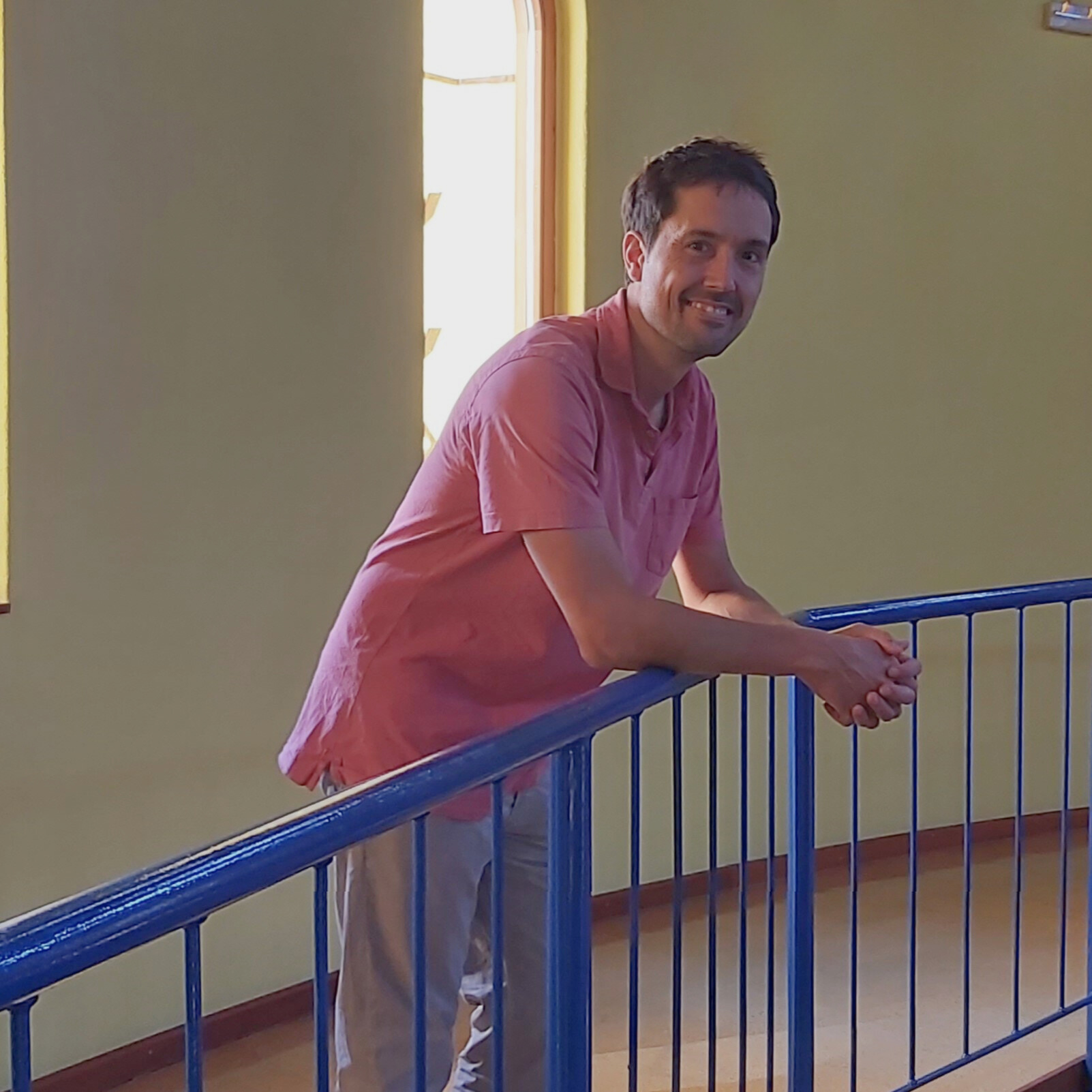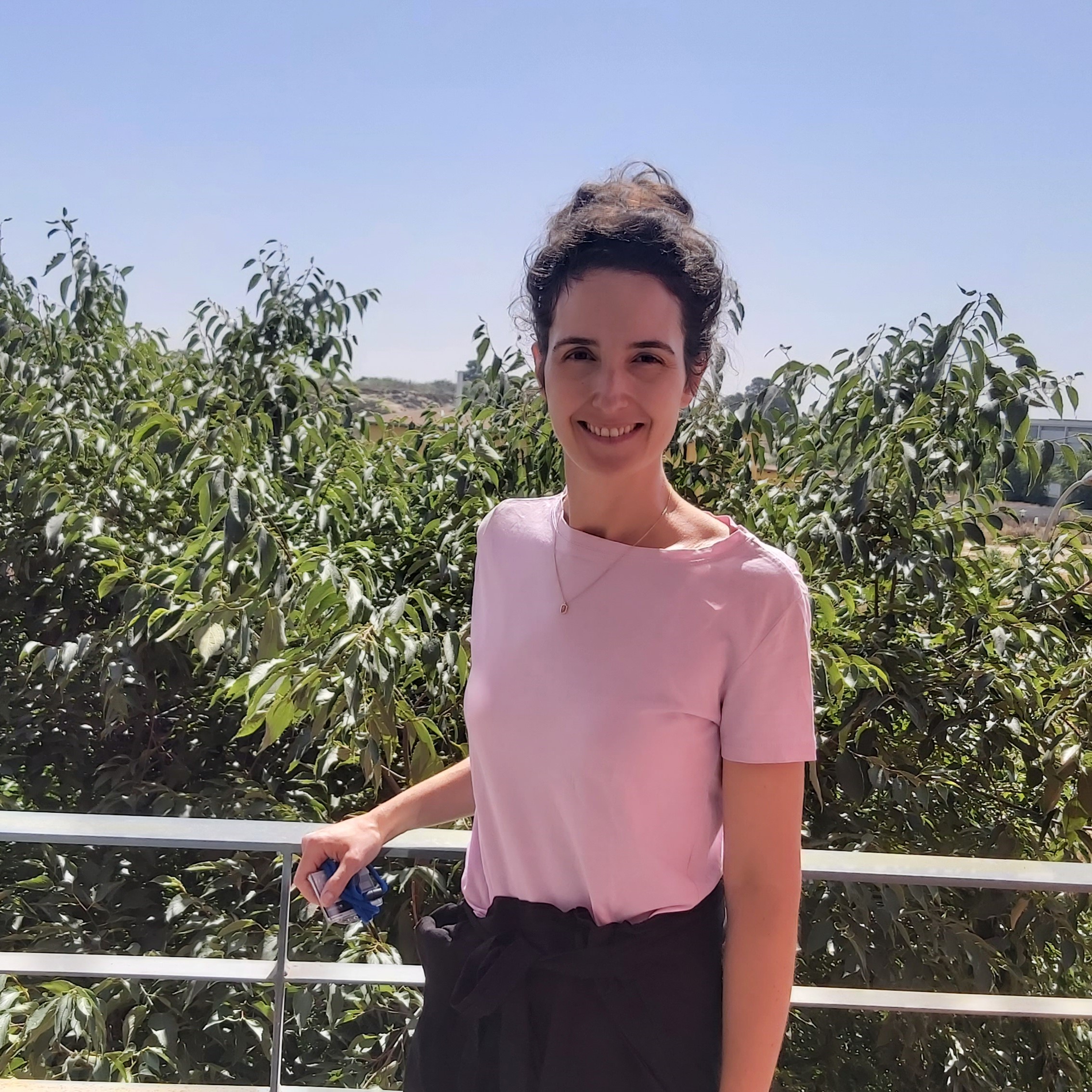
Why did you decide to go into research?
At the beginning of my career, I was not sure what I wanted to do and I started working in an electronic development company. Shortly after, the possibility of working on a European research project at the CSIC arose. I decided to take that path, expecting that research would be a constant challenge.
Within the project with which I started, I had the opportunity to do a doctoral thesis focused on the processing and classification of brain signals. I was very attracted to the possibility of studying the human brain, although I was deeply unaware of it.
How long have you been linked to the I3A and what would you highlight about the Institute?
I have been at I3A since last year, in the BSiCoS research group. I like it because it is quite interdisciplinary, with many researchers from different areas working on very different projects. Research is also promoted in innovative fields that take you out of your comfort zone, as is my case, a telecommunications engineer doing analysis of biomedical signals, for example.
In your research group, what are your most important lines or areas of work?
In our laboratory, in the BSiCoS group, we work on neural interfaces, and we try to find ways to interact with the nervous system in living beings. The ultimate goal is to be able to detect and study signals from the nervous system to understand how neural processes work that give rise to behavior and movement. We also seek to develop methods that allow us to better diagnose different neurological diseases and motor disorders or that serve to generate localized changes in the function of the nervous system.
Do you have any ongoing projects that you would like to highlight?
Now, we are with a European project that started recently. It is a 'Starting Grant' type project financed by the ERC with a duration of five years. In this project, we will be working on the development of new neuroimaging methods based on muscle recordings. Specifically, we will develop new technologies to infer activity in the brain and spinal cord from the electric fields generated by our muscles when we move.
What do you enjoy most about your profession? And what do you enjoy least?
Freedom is what I like most about my profession, without a doubt. From the moment you start doing research you have to be constantly searching for your ideas, looking for solutions, considering what is important and what is not and trying to find a personal path in the world of research. For me, that is very nice compared to other career paths.
In addition, if we talk about the least, I would mention two things, the bureaucracy and the lack of stability that my generation has been deeply affected by. We are the eternal postdoc, extending those temporary contracts beyond what the meaning of a postdoc had a few decades ago.
What would you say to anyone thinking of going into research?
I would tell him to first talk to people who are at different stages of their research career and have them tell him about their experience to find out if, with his personality and interests, he thinks he will enjoy this job. As researchers, we love to give our opinion about this career, it is easy to find people to advise you. I think ours is not a profession that suits all types of personalities, it is a bit peculiar.
CLOSE UP…
What did you study?: Telecommunications Engineering at the University of Zaragoza and the Master of Biomedical Engineering at the Polytechnic University of Madrid.
A dream to fulfill: Start a music group with my daughter (for dreaming...)
Hobbies: play tennis, play guitar and play with my children
A book: “The Magic Mountain” by Thomas Mann
A film or series: Léolo and The Wire as a series
Favourite music group: Wilco
A trip: Cuba with my wife as an expert guide
How would you define yourself: I think I am curious, open and optimistic (with nuances)
